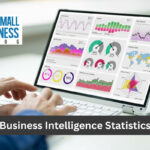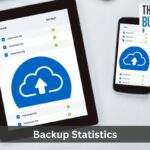In the bustling arena of today’s global economy, data analytics has emerged as the compass guiding businesses to new horizons.
As vast as the ocean of data might be, the true treasure for businesses lies in their ability to navigate it by translating raw information into actionable insights.
The remarkable metamorphosis of analytical tools has given businesses the means to not only swim but to chart their own course amidst the waves of the digital age.
Post Contents
Evolution Of Business Intelligence Tools
Decades ago, businesses were limited to rudimentary spreadsheet tools to gather insights from their data.
Fast forward to the present, and we’re witnessing an era where sophisticated platforms like Tableau and Power BI dominate the scene.
These tools, equipped with visual analytics capabilities, empower organizations to visualize complex datasets.
For instance, consider a fashion brand that wants to understand its sales patterns. With BI tools, it can now produce vivid charts showing which clothing items were most popular in different regions, during different seasons.
Such granular insights, once the domain of expert analysts, are now at the fingertips of even the most non-technical business professionals.
The democratization of data analysis, propelled by these intuitive tools, is not just a leap forward in informed decision-making, but a giant stride towards fostering a culture of data literacy across various strata of an organization.

Predictive Analytics And Its Game-Changing Potential
Predictive analytics, the science of forecasting future outcomes based on historical data, is nothing short of a revolution.
It is akin to having a crystal ball, offering businesses a peek into probable future scenarios. For instance, a toy manufacturing company could use advanced analytics to determine which toys might become hits during the holiday season.
By analyzing past trends, consumer reviews, and market research, it can produce, stock, and market those toys more efficiently. This foresight doesn’t just maximize profit but also reduces waste and ensures better resource allocation.
Beyond the sphere of manufacturing, this potent tool finds its applications sprawling across various domains.
In healthcare, using data to forecast future outcomes could empower hospitals and clinics to anticipate patient admission rates, enabling optimized staff allocation and resource provisioning to handle peak times efficiently.
Similarly, within the financial sphere, companies can utilize predictive analytics to anticipate market tendencies, aiding investors in making well-informed choices to lessen risks and amplify returns.
Furthermore, the realm of customer relations is drastically transformed with data analytics, as companies can anticipate consumer needs and preferences, tailoring their offerings to enhance customer satisfaction and foster loyalty.
This can also significantly impact supply chain management, where data forecasting can be employed to forecast demand, streamline inventory levels, and optimize supplier engagements, thereby reducing operational costs and boosting overall efficiency.
With the emergence of advanced algorithms and the widespread availability of big data, the precision and breadth of analytics are set to achieve new milestones.
In essence, this transformative technology doesn’t just streamline operational efficiencies and cut costs, but it propels businesses into a new era of data-driven decision-making, creating a significant competitive advantage in a rapidly evolving market landscape.
With the power of analytics, organizations can not only address present challenges more effectively but also envision and prepare for future opportunities, marking a monumental shift in how businesses strategize and operate.
Harnessing Ethical Data Practices In Business Transformation
As organizations delve deeper into the analytics landscape, ethical handling of data is gaining paramount importance.

The impetus is now on businesses to ensure the sanctity and privacy of the data they harness, which in turn builds trust with their stakeholders.
Regulations such as General Data Protection Regulation (GDPR) in Europe and California Consumer Privacy Act (CCPA) in the US are reflective of the global urgency toward ethical data practices.
While navigating through the vast data, maintaining a moral compass is essential. For instance, a healthcare organization leveraging data analytics to improve patient outcomes must ensure the confidentiality and security of personal health information.
Ethical data practices aren’t merely a legal obligation but a cornerstone for fostering trust and responsible innovation.
The integration of ethical considerations in data handling and analysis processes is becoming a hallmark of reputed organizations, differentiating them in a competitive, data-driven marketplace.
This proactive stance on data ethics not only lessens legal and reputational risks but also sparks a culture of trust and transparency among businesses, consumers, and the extended society.
Integrative Platforms And The Seamless Data Experience
Gone are the days when businesses had to wrestle with multiple data sources in silos. Modern integrative platforms enable data from diverse repositories to be channeled into a unified analytical dashboard.
Imagine a multinational enterprise with operations in various countries. Instead of analyzing sales or user behaviors separately for each region, these platforms can offer a consolidated view, making it easier to spot global trends or anomalies.
The importance of real-time analysis also cannot be overlooked.In a realm where market conditions shift in a heartbeat, possessing real-time insights is priceless.
A simple example could be a stock trading firm that, leveraging real-time data, can make split-second decisions to capitalize on market movements.
It is intriguing to see how the tech world has mirrored some strategies from other domains.
Much like how online platforms entice users with options like the 32red welcome offer, integrative platforms often provide businesses with unique features and perks to ensure their continued loyalty.
This methodology not only cultivates brand loyalty but also urges businesses to delve deeper into data-centric strategies.
Moreover, by engaging in this digital ecosystem, companies are often propelled towards a more collaborative environment, utilizing the collective intelligence and insights garnered across various industries.
The cross-pollination of ideas facilitated by these platforms often leads to novel solutions to age-old challenges.
Over time, this harmonized approach cultivates a fertile ground for sustainable business growth and technological advancement.
As the business landscape continually evolves, staying anchored in data insights becomes an undeniable necessity.
Those who harness the power of these tools effectively will not only survive but also thrive, charting a course to unprecedented success in the digital age.






























